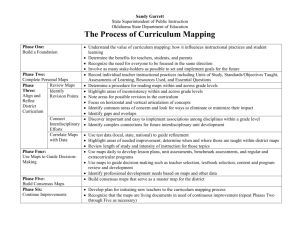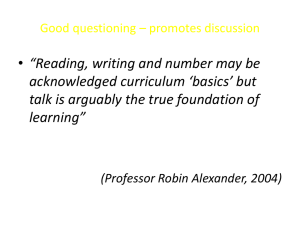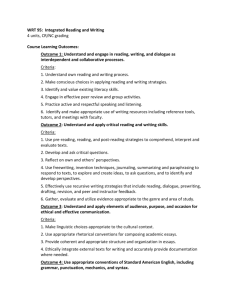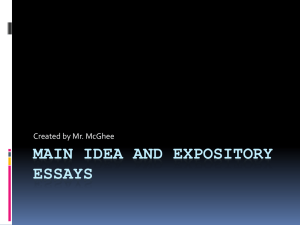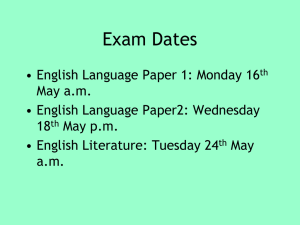Contemporary Literature Syllabus
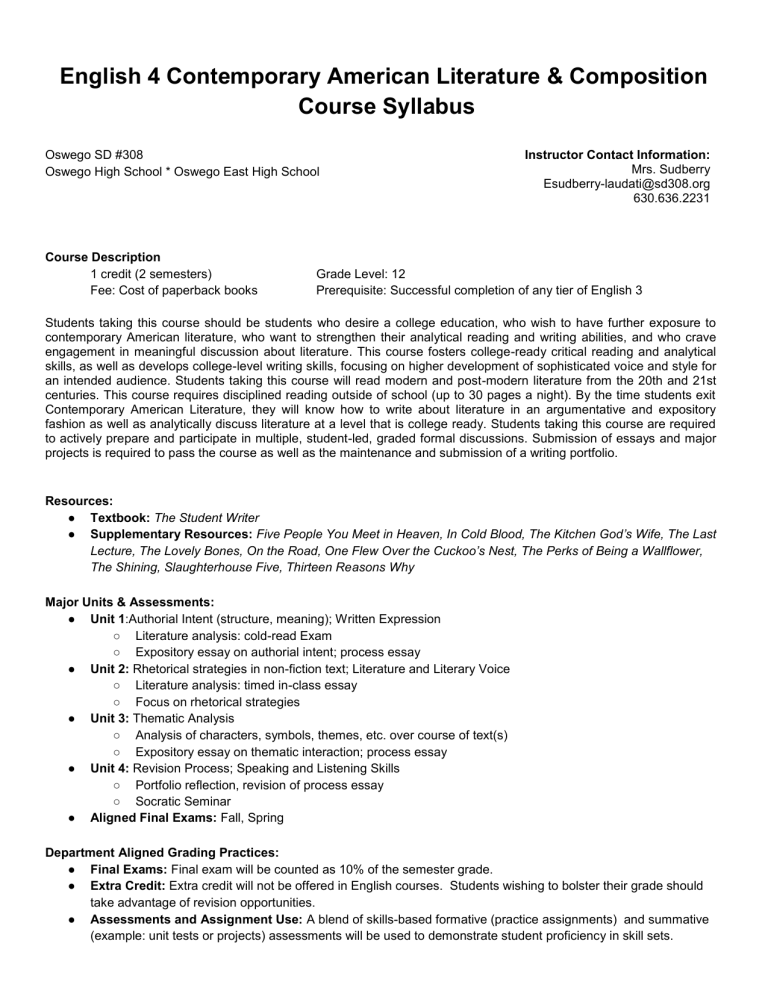
English 4 Contemporary American Literature & Composition
Course Syllabus
Oswego SD #308
Oswego High School * Oswego East High School
Instructor Contact Information:
Mrs. Sudberry
Esudberry-laudati@sd308.org
630.636.2231
Course Description
1 credit (2 semesters)
Fee: Cost of paperback books
Grade Level: 12
Prerequisite: Successful completion of any tier of English 3
Students taking this course should be students who desire a college education, who wish to have further exposure to contemporary American literature, who want to strengthen their analytical reading and writing abilities, and who crave engagement in meaningful discussion about literature. This course fosters college-ready critical reading and analytical skills, as well as develops college-level writing skills, focusing on higher development of sophisticated voice and style for an intended audience. Students taking this course will read modern and post-modern literature from the 20th and 21st centuries. This course requires disciplined reading outside of school (up to 30 pages a night). By the time students exit
Contemporary American Literature, they will know how to write about literature in an argumentative and expository fashion as well as analytically discuss literature at a level that is college ready. Students taking this course are required to actively prepare and participate in multiple, student-led, graded formal discussions. Submission of essays and major projects is required to pass the course as well as the maintenance and submission of a writing portfolio.
Resources:
● Textbook: The Student Writer
● Supplementary Resources: Five People You Meet in Heaven, In Cold Blood, The Kitchen God’s Wife, The Last
Lecture, The Lovely Bones, On the Road, One Flew Over the Cuckoo’s Nest, The Perks of Being a Wallflower,
The Shining, Slaughterhouse Five, Thirteen Reasons Why
Major Units & Assessments:
● Unit 1 :Authorial Intent (structure, meaning); Written Expression
○ Literature analysis: cold-read Exam
○ Expository essay on authorial intent; process essay
● Unit 2: Rhetorical strategies in non-fiction text; Literature and Literary Voice
○ Literature analysis: timed in-class essay
○ Focus on rhetorical strategies
● Unit 3: Thematic Analysis
○ Analysis of characters, symbols, themes, etc. over course of text(s)
○ Expository essay on thematic interaction; process essay
● Unit 4: Revision Process; Speaking and Listening Skills
○ Portfolio reflection, revision of process essay
○ Socratic Seminar
● Aligned Final Exams: Fall, Spring
Department Aligned Grading Practices:
● Final Exams: Final exam will be counted as 10% of the semester grade.
● Extra Credit: Extra credit will not be offered in English courses. Students wishing to bolster their grade should take advantage of revision opportunities.
● Assessments and Assignment Use: A blend of skills-based formative (practice assignments) and summative
(example: unit tests or projects) assessments will be used to demonstrate student proficiency in skill sets.
English 4 Contemporary American Literature & Composition
Course Syllabus
● Grade Book: Please see the items below for details regarding English teachers’ online grade books.
○ Total points are used in the setup of teachers’ online grade books; the “weight” or value of many assignments and several assessments will be flexible for teacher and student-need per class.
○ Point “weight” on assignments will be determined by course teams and individual classroom teachers.
Major or summative assessments will be given the most points in a unit; practice or formative assessments will have fewer points in a unit.
○ Assignment categories in online grade books will be mostly Common Core based skills. Categories that will be used in various units include:
■ CCRI: Reading Informational Text, CCRL: Reading Literature, CCAW: Argumentative Writing,
CCEW: Expository Writing, CCNW: Narrative Writing, CCRW: Research & Research Writing,
CCSP: Speaking & Listening (Presentations), CCSC: Speaking & Listening (Collaborative
Discussions), CCLA: Language
■ Additionally, some courses may also use assignments categories if the assessment includes multiple or a different skill sets: CCRB: Responsible Behaviors, TST: Test, PRO: Project
● Revision Practices: Major assessments initially earning a D or an F are available for revision. Most prominently, this applies to essays, but may not be limited to essays. Students who earn a D or F on a major assessments (as identified in the course syllabus) will be provided one additional week after the time the assignment is returned.
To be eligible for the revision process, students must also meet with a teacher or a tutor to support the revision process. There is only one opportunity to revise a major assessment, but classroom teacher reserves the right to allow more attempts. Final exams and plagiarized essays are not eligible for revision. Plagiarized essays earn a failing grade, but must be revised for the student’s learning experience.
● Late Work: Late work will be accepted for feedback in learning, but it will be up to the teacher to determine if points will be awarded. Late work is handled on a case-by-case basis with students by teacher discretion.
Teachers may choose to accept late work in individual cases for credit. District policies on absent work (and extenuating circumstances like medical leaves, etc.) trump department practice.


